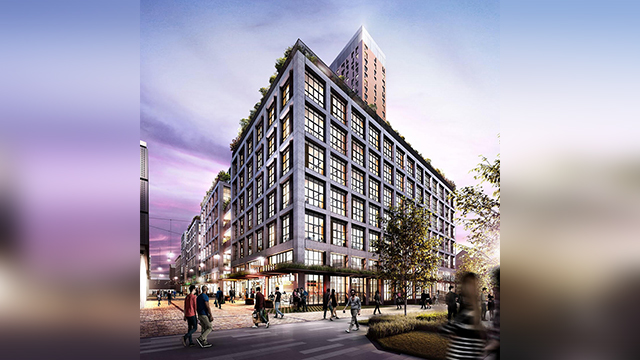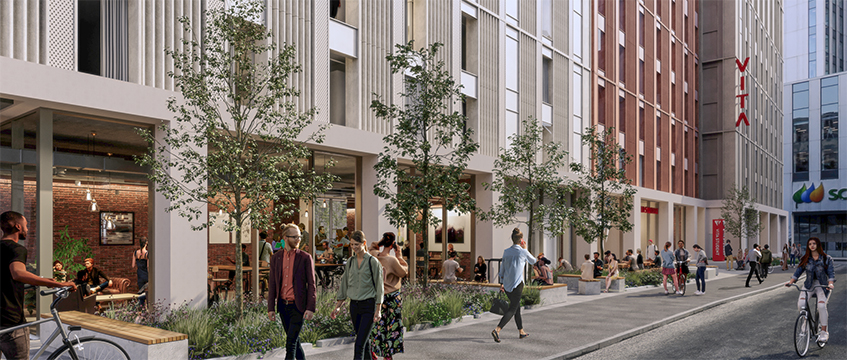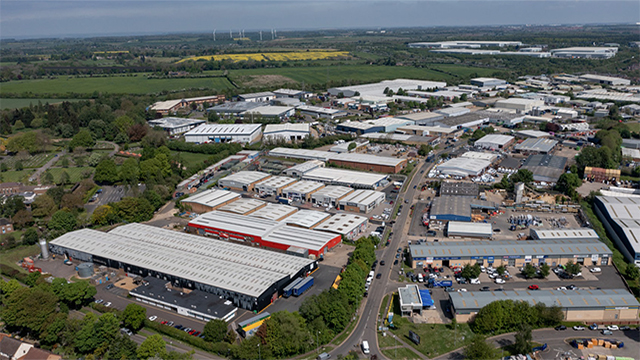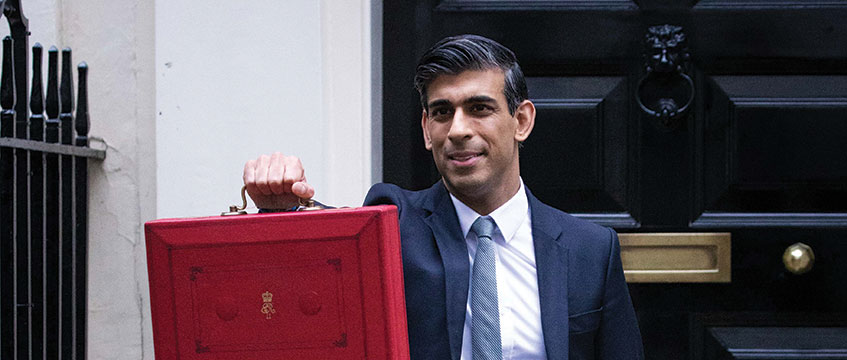Budget: Sunak halves rates but refuses to abolish the system
Chancellor Rishi Sunak has set out plans for the “biggest single-year tax cut” to business rates in 30 years, but lambasted calls to scrap the model as “completely irresponsible”.
The chancellor criticised Labour’s previous promise to abolish business rates as “reckless” and “unfunded”.
“It would be wrong to find £25bn in extra borrowing, cuts to public services or tax rises elsewhere, so we will retain business rates… but with key reforms to ease the burden and create stronger high streets,” he told the House of Commons.
Chancellor Rishi Sunak has set out plans for the “biggest single-year tax cut” to business rates in 30 years, but lambasted calls to scrap the model as “completely irresponsible”.
The chancellor criticised Labour’s previous promise to abolish business rates as “reckless” and “unfunded”.
“It would be wrong to find £25bn in extra borrowing, cuts to public services or tax rises elsewhere, so we will retain business rates… but with key reforms to ease the burden and create stronger high streets,” he told the House of Commons.
Sunak instead sought to appease small business owners and landlords with a 50% discount for retail, hospitality and leisure sectors for one year, up to a maximum of £110,000. He said this would be worth nearly £1.7bn.
Next year’s planned increase in the rates multiplier will be cancelled, which the chancellor claimed would save businesses £4.6bn.
The levy will also get a new three-year revaluation cycle and relief for on-site green technologies. That means that until 2035, plant and machinery used on-site for renewable energy will be exempt from business rates.
He also proposed a business rates “improvement relief”, meaning that businesses will be able to make property improvements from 2023 and pay no extra rates for 12 months.
Sunak said: “We are unleashing the dynamism and creativity of British businesses with a simpler, fairer and more competitive tax system.”
“Another blow” for retail
Leading industry figures have strongly criticised the government’s decision not to abolish rates or introduce more meaningful, wholesale reform.
Scott Parsons, UK chief operating officer at Unibail-Rodamco-Westfield, said: “The decision by the chancellor to continue to avoid imposing any kind of tax on the e-commerce sector is another blow, as bricks-and-mortar retailers continue to operate on an uneven playing field.
“Of the £7.9bn that was raised through retail business rates in 2019/20, just over 5% was raised from online retailers, who at the time represented approximately 25% of sales.
“We challenge this government to be brave and smart enough to come up with a solution, so our high streets don’t have to shoulder virtually all of the tax burden for the retail industry and online pays its fair share.”
Miles Gibson, executive director of UK research at CBRE, said: “The business rates review seems to have run into the sand, being replaced with a further raft of big one-off cuts in the business rates bill, which, while welcome, do not address underlying structural issues. Three-yearly revaluations were first announced five years ago and no chancellor has yet been able to implement this policy, so we remain somewhat sceptical that this much-needed reform will actually happen.”
Jerry Schurder, business rates policy lead at Gerald Eve, described the decision as a “larger than normal sticking plaster” for retail, leisure and hospitality. However, he pointed out that the move to three-yearly rates revaluations was “no more than a regurgitation of the government’s decision following its last major rates review in 2016” that it has “failed to deliver in the intervening years”.
Schurder added that the devil is in the detail, noting the 66% rates discount for retail, leisure and hospitality is capped per business, not per property, at £2m. “If the cap is continued next year, multiple property occupiers will not be able to access the new 50% relief for much of their portfolio,” he said.
New housebuilder levy
Sunak’s Budget mainly focused on business rates, housing and transport infrastructure, declaring that the UK can start looking beyond Covid to “an economy fit for a new age of optimism”.
Housebuilders were presented with a tax to pay for the removal of flammable cladding from high-rise buildings.
The levy, for residential developers with profits of more than £25m, will be set at 4% and is expected to raise at least £2bn over the next decade for remediation works.
MPs have previously estimated that the cost of fixing the crisis – which was tragically brought to the fore of public attention by the Grenfell Tower fire – could total £15bn.
However, housebuilders will benefit from a £1.8bn cash injection designed to help brownfield sites covering the equivalent of 2,000 football pitches to be turned into plots for new homes.
The Treasury has said 160,000 new homes could be delivered on regenerated land across the country, as well as transport links, schools and community spaces.
Grant funding worth £300m will also be handed to metropolitan mayors and councils to unlock smaller brownfield sites for housing.
A new £9m levelling-up parks fund will give cash to local authorities to spruce up 100 neglected urban spaces into pocket parks.
Elsewhere, Sunak promised nearly £7bn of spending on transport infrastructure, including just over £1bn each for Greater Manchester and the West Midlands, and £830m for West Yorkshire.
However, the policy, which was billed as a key part of the government’s levelling-up agenda, includes just £1.5bn of new investment. The headline figure includes £4.2bn which was announced in 2019, plus funding for buses which the prime minister revealed last year.
The raft of funding announcements came as the Office for Budget Responsibility projected GDP growth of 6.5% this year, up from previous estimates for 4%, followed by 6% growth in 2022.
The expected hit to the economy of Covid-19 was revised down from 3% of GDP to 2% of GDP.
“Today’s Budget begins the work of preparing for a new economy post-Covid,” the chancellor said.
“An economy of higher wages, higher skills and rising productivity. Of strong public services, vibrant communities and safer streets. An economy fit for a new age of optimism. That is the stronger economy of the future.”
To send feedback, e-mail alex.daniel@eg.co.uk or tweet @alexmdaniel or @EGPropertyNews
Photo © Vianney Le Caer/Shutterstock











